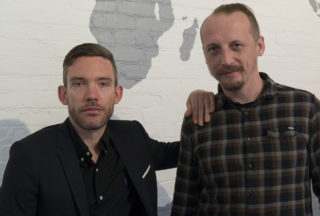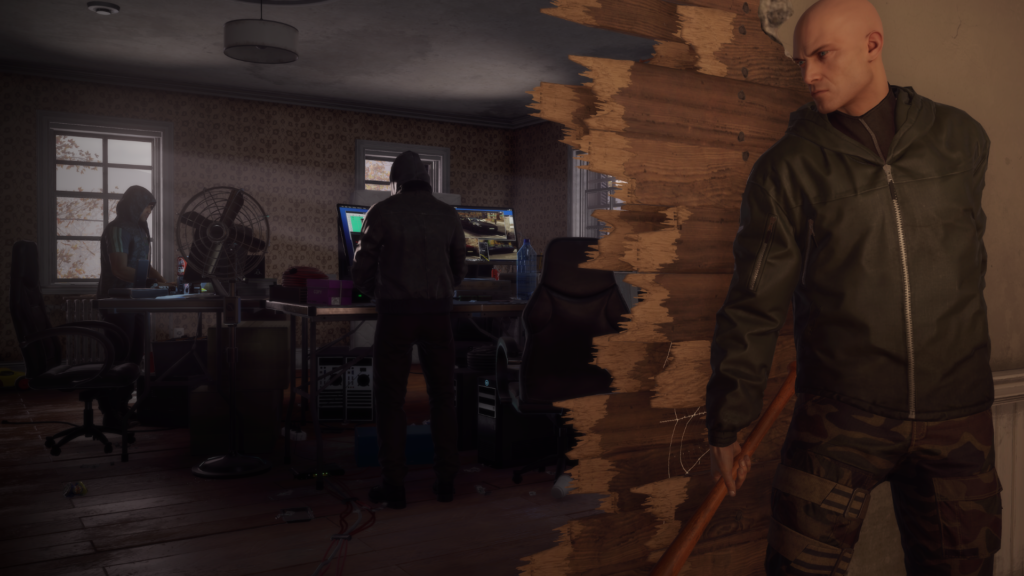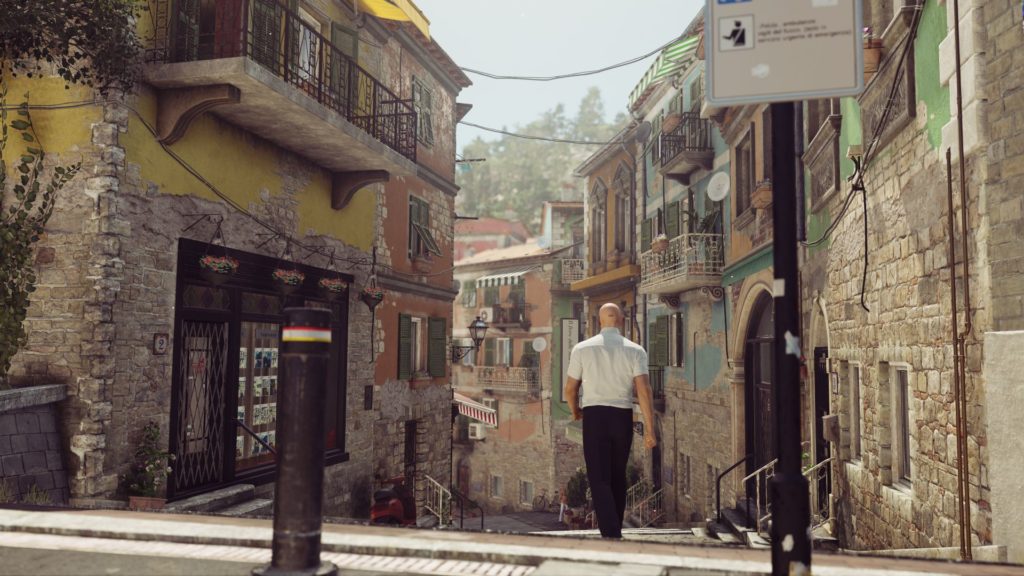Hitman, the game where players take the role of a master assassin named Agent 47 to eliminate targets however they can, saw some stunning promotions leading up to its launch as an episodic game series. Since then, the game has been challenging players with new locations and elusive targets—characters that players have only one chance and a limited window of opportunity to take out.
The first season, which is comprised of six episodes and a prologue, will release its finale on October 31, which takes place in Japan. Then the game will release on disc in January before developer Io-Interactive begins work on the second season. In a sense, the approach of the season finale brings a sense of freedom to the developers. Up until the release of the penultimate episode, Colorado, the studio had to downplay the story, which had to remain as a great mystery. This made promoting the game all that much more difficult.

Hitman’s lead writer Michael Vogt, and Sven Liebold, the global brand PR manager recently talked with [a]listdaily about bringing the first season of its episodic game to its conclusion, the power of its main character, and what might be in store for the future.
Vogt, in describing the new Hitman game said, “we set out to reimagine the Hitman franchise as a cool, contemporary spy thriller set in a believable universe with characters you actually care about in a mature, intelligent, way.”
Part of that plan was to create an ambitious episodic storyline that covered multiple seasons. Hitman is a unique game on multiple levels, starting with how the main characters of story usually end up being the targets. The episodes are also unlike most other AAA games, with its sandbox gameplay, where players are free to do anything they please, and elusive target challenges. However, keeping the plot that tied all the episodes together under wraps proved to be a challenge.
“We decided to just launch the storyline. We didn’t make a big fuss about it.” Io let people pick up the essence of the story, and the World of Assassination, as they played. As an episodic game, Io wanted to give players a chance to be Agent 47 and conduct business as usual, taking out targets, before realizing that they were all connected to a larger plot. Players experienced what it was like to be Agent 47 and travel the world. They went to Paris to become a superspy, but it wasn’t until recently that the plot became clear enough for many players to discern what was going on.
Vogt noted that Hitman has a fan base that’s very loyal, and when they first saw that the prologue delved into the Agent 47’s past, and then played the Paris mission, they were probably confused about the plot but remained engaged with the game. “There was enthusiasm, then confusion, then enthusiasm again,” said Vogt.
Vogt also stated that with episodic games, he could spend more time developing characters, while with a traditional game, the story had to move at the same pace as the action. “As a writer, I can plan storylines for multiple seasons, but I don’t know how it will actually turn out,” he said and discussed how the main beats of the storyline are filled out, but each mission is its own self-contained universe with “a buffet of different approaches” to solve them.
Liebold talked about pleasing the fan base. They didn’t plan out episodes saying to themselves that they were destined to become fan favorites. Incidentally, the most popular level is the villa of Sapienza. “At least from a holistic perspective, that’s a fan favorite,” said Liebold. Other favorites include the Bangkok mission because of its storyline. All of it builds to the penultimate episode in Colorado, where stealth plays a considerably greater role than in previous missions.
“It’s interesting to see things unfold from the player’s side,” said Vogt. “When we first started in March, there were a lot of concerns.” He said that there were some supportive fans, but others that claimed that the episodic format wouldn’t work. “In the end, that really shifted around a bit—when players realized they have this one level and they can spend extra time there. One thing we’re really proud of is making replay fun.”
The two compared rushing through and playing Hitman like a traditional game to going into a bar and taking one sip of a beer before moving to the next one. “The replay value is huge,” said Liebold. “It’s not just that it’s fun to replay, it’s that it’s necessary if you want to discover the stuff that’s in there.”
“The interesting thing for me is that the game now is sort of different from what we started out with in March,” said Vogt. “The episodic nature of the game truly gives us an opportunity to react to community feedback very quickly, and also gives a lot of freedom to put stuff into episodes that we missed out on [in previous episodes].” For example, in the Paris mission, fans found a vampire magician costume and had lots of fun with it. Those antics inspired a Vampire Magician Challenge Pack, which turned out to be a great success. “We really embrace the freedom the episodic model gives us.”

Vogt also discussed the success of the live content, particularly the elusive targets. “It’s a very bold move to set up the elusive targets, where you have one shot and one target in a certain amount of time. The question was: how much time is good? Forty hours? Twenty-four hours? Do we have to set up for three days? Four days?”
Liebold also talked about the elusive targets. “We made it clear from the beginning that the best experience is if you join right from the beginning,” he said. Elusive target content to helped to fill in the time between the episodes. Liebold also said that the team understands that there will be frustration from players, having missed out on these timed events, but “that doesn’t mean that we don’t have something in store for when the discs release.”
When asked about the difficulty of promoting the Hitman episodes, given its unique gameplay and complex plot, Vogt spoke about how “vulnerable” the game was. Players can’t just play it for five minutes to truly understand it. They have to fully commit to playing it. “Unless you take the time to not only play the training, but walk around listen to the characters and what they’re saying, they (the episodes) could come across as thin because they’re only experiencing two percent of the actual game.”
Liebold added that talking about Hitman can be difficult because it’s such unique game. “There’s nothing out there like this,” he said. “It’s really hard to bring across this sort of gameplay, because it’s attached to so much creative freedom. You can do whatever you want. . . It’s difficult to bring across what Hitman actually is unless you take the control pad and take the time to embrace it and rub it in. Then you start to realize what Hitman actually is.”

When asked about what made Agent 47, a cold killer, such an enduring character after so many games, Vogt responded by saying “he has been many different things.” In the past, he has been the master assassin, and the latest game portrays him more as a spy. Liebold characterized Agent 47 as a “master strategist who is always two steps ahead.” He also added that, “many of our fans don’t like the idea of him changing.” That doesn’t mean that the developers can’t add personality, but the evolution of his character needs to be subtle. Vogt also stated that everybody in the audience has a different idea of what Agent 47 should be, and striking the right balance is the challenge.

